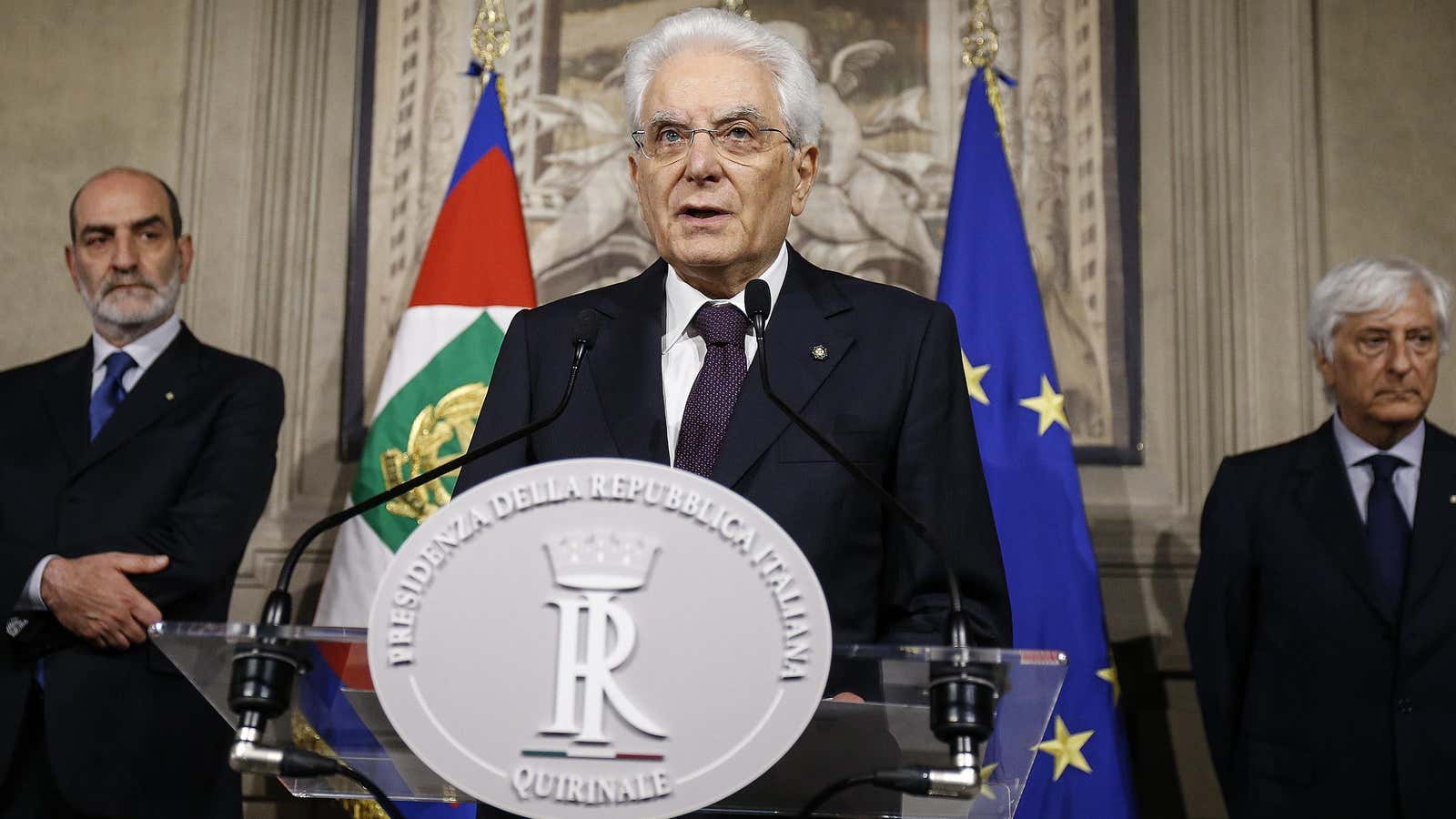Almost three months after Italy’s election, a right-wing populist coalition between the Five Star Movement and the Northern League had finally come up with a plan. Designated premier Giuseppe Conte, whom the coalition put forward for prime minister earlier this month, presented his cabinet to Italian president Sergio Mattarella for approval.
No such luck. Mattarella rejected the coalition’s choice of Paolo Savona, a controversial Euro-skeptic professor, as minister of the economy. He expressed concern that Savona would consider pulling Italy out of the Eurozone, generating financial instability and market issues that, according to the president, would lead to financial risks for Italians. Although cabinet ministers are proposed by the prime minister and his coalition, they must be appointed by the president.
On Monday (May 28), Five Star leader Luigi Di Maio said the president rejected alternative names suggested by his coalition. Mattarella denied the claim, saying the coalition never provided any alternative names.
“The president of the Republic has the role of a guarantor and never has been, and never can be, subject to any impositions,” Mattarella said in a speech after his veto (link in Italian). The move earned the president praise among those who shared his concerns about Savona, as well as criticism and even threats (link in Italian) from the coalition’s supporters.
Over the weekend, the Five Star Movement and the Northern League described Mattarella’s opposition to Savona as unjustified and partisan, and alluded to his being part of a conspiracy to stop their government. The coalition has called for a rally in Rome on June 2, and suggested it might pursue impeachment.
But there are no grounds for impeachment. While the president’s approval is often perceived as pro-forma in Italy, there have been a few cases when the head of state refused to sign off on an appointment. As recently as 2014, Giorgio Napolitano did not accept Matteo Renzi’s suggestion of Nicola Gratteri as minister of justice. (He was a working judge and Napolitano felt his appointment would cross the line between judiciary and executive.) In 2001, Roberto Maroni, now a moderate in the Northern League, was rejected by then president Carlo Azeglio Ciampi because he was under investigation.
For now, Mattarella has asked Carlo Cottarelli, a former International Monetary Fund official, to form an interim government. Cottarelli will ask for a vote of confidence to govern long enough to approve a budget and push new elections to early 2019. If he doesn’t receive enough support, which is likely, new elections will be called after the summer.
